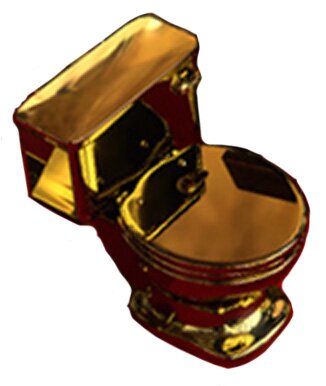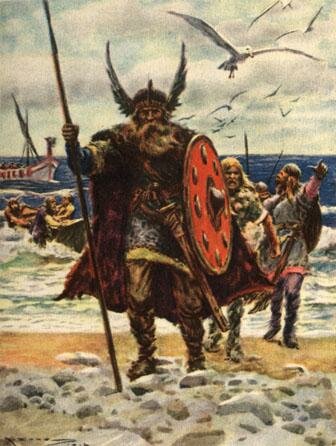Top 10 Ancient Historians
Suggested by SMSEver wondered how we know anything about ancient history? Well meet ten of the people who made it possible. It might seem crazy but without people putting things down in words everything would get lost. Archaeology is great, so is science, but none of that’s going to tell you who there names where, where they lived, or what they called a shovel. Some stuff doesn’t come down through the ages, for instance do you know what a Roman called a shovel? Or speak any Latin at all? See. Most ancient writing has been passed to us through a long and complicated path and most of the writing we have came through monks that copied it down during the Middle Ages. Lots of it got thrown away. Lots more simply got lost. Some of it got changed to fit the ideas of the monks and their teachers. Some of it has been found buried under the dirt, the sand, the stone and the soil. Here is a list of the top 10 ancient historians.
10. Sima Qian (145 – 86 BC)

Livy was born in Patavium (modern Padua) in northern Italy around the year 59 BC (though it may have been 64 BC). He began to write his most important work, History of Rome at the age of thirty. While he lived in eventful times little is known about his life. Although from his work historians have been able to guess that he spent most of his life in Rome and, among other things, met with Augustus once or twice and ended up helping Claudius, (the later emperor), with his literary works. However despite the importance of any ancient text, Livy is more known for his literary style and talent then his ability as a historian. In fact he is often inaccurate or just plain wrong in order to maintain his style. His work on the history of Rome ended up being 142 books long of which 35 have survived.
9. Gaius Julius Caesar, (100 – 44 BC)

Sima Quian is held to be the father of Chinese historiography, (which means the study of Chinese history, assessing the assumptions it makes). He wrote the work Records of the Grand Historian, which covered over two thousand years of history from the ‘Yellow Emperor’, (a mythical figure and hero believed to be the father of all Han Chinese) to Emperor Han, (who’s name was Liu Che and the seventh in the Han dynasty to become emperor.) His descendants would go on to become the ruling family themselves after helping to establish the Jin Dynasty and after the end of the Three Kingdoms. (The Jin dynasty was one of six dynasties before the Three Kingdoms period, which was an ear of stability after the fall of the Han Dynasty and the chaos created by having those ix dynasties.) Sima Quian himself was employed as the Prefect of the Grand Scribes during the Han dynasty, a position that made it possible for him to record china’s history.
8. Ammianus Marcellinus (325/330 – after 391?)

Ammianus Marcellinus was one of the last writers of antiquity. Historians have less information to go on for the later period of the Roman Empire and that is largely because of a lack of written sources, (that survived.) Ammianus Marcellinus offers a brief respite from this void of historical writing and his work covers the period of 353 – 378 AD. Again we know very little about the man himself, though he may have been born in Antioch, if he was the recipient of a letter to ‘Marcellinus,’ but we can’t be entirely sure. He joined the army at an early age under Constantine II and was a first hand witness to the events of that period, namely the battle for the throne by the sons of Constantine the emperor who truly introduced Christianity as the organized religion of the Roman empire. Ammianus Marcellinus wrote in Latin and ended up settling in Rome during the early 480’s AD.
7. Cicero, Marcus Tullius, (106BC – 43BC)

In the ancient world of Rome, rhetoric was highly praised and essential the main stay of both the political and social system. Cicero was considered to be a master of that craft, (not that he didn’t, or doesn’t, have his critics.) But he was also a philosopher, a layer, a statesman and more. While not technically a historian his work has been carefully studied and examined by modern historians as closely as it was by those of his own time. What’s more he is also considered a large factor in the Hellenistic or Roman culture, (Romans getting hooked on Greek culture) because he introduced the reading public to the ideas for Greek philosophy. His political speeches and writings are also a good source material for any historian and since he lived, and spoke on, the actions of Julius Caesar, the coming of the empire and the civil wars of Rome, he finds himself on a top 10 list of ancient historians.
6. Xenophon (427 – 355 BC)

Xenophon of Athens was a student of Socrates, like Plato, but he was also a historian. He wrote a number of different things and one of the most important was the Anabasis. As a young man he joined Cyrus the Younger in an expedition against Cyrus’ brother; the emperor Ataxerxes in 401 BC. (Xenophon tells us that before going on this expedition he asked Socrates for advice on whether or not to go, and that Socrates told him to ask the oracle at Delphi.) The army, known as the ‘Ten thousand’, won the battle but lost Cyrus in the process as well as a number of other leaders. Xenaphon was one of the men elected to take their place as the army fought its way out of hostile territory and back to the coast of the black sea. In the process they passed through Persian, Armenian, and Kurdish territory. Xenophon wrote of their experiences in this work and interestingly Alexander the Great used this work as a field guide during the early years of his expedition into Persia.
5. Gaius Tacitus (56 – 117 AD)

Gaius Tacitus, or Publius Cornelius Tacitus, is a little more ‘tricky’ then most. He wrote two major books called the Annals and the Histories. He lived under the Emperor Domitian and spent a lot of effort trying to argue against the dangerous of ultimate power. He was extremely skilled in using Latin and is considered to have been the best writer in Latin, except perhaps for Cicero. Such skill and context made his writing more difficult to understand then most since he seems to be hiding a lot of his opinions. He has been called one of the most intelligent of the ancient world. His work deals with the history of several emperor’s including the Roman Emperors of Tiberius, Claudius and Nero ranging the history from the death of Augustus to the reign of Domitian. Large parts of his work, like most ancient historians, are missing.
4. Plutarch (46 – 127 A.D)

Plutarch would probably not have called himself a historian. Born in Chaeronea in Boetia (Greece) during the reign of Emperor Claudius he was able to use his family wealth to study philosophy, rhetoric and mathematics at the Academy of Athens. But his understanding of Latin never seems to have grown beyond the basics and it is likely that he used freedmen to transcribe his work, which is an important point when considering the scope and inferences of his work. He wrote the parallel lives, (a series of biographies that placed two characters in history opposite each other to highlight the differences and similarities), where Plutarch seems to argue that a lack of a Hellenic, (Greek), education is the sign of someone less intellectual, (a non-philosopher.) But regardless of his opinions of a Roman education and language his work has been able to provide us wit in-depth knowledge and understanding of Greek and Roman culture. It is an insightful and significant work and one of the more entertaining ancient books to read.
3. Thucydides (460 – c. 400 BC)

Thucydides wrote the history of the Peloponnesian War which took place in the 5th century B.C, which was fought between the two main powers of Greece, Athens and Sparta. He is the first historian to set strict standards for evidence gathering and analysis, meaning that he wanted to know why, and didn’t accept ‘because the gods did it.’ For this reason he has been called the father of ‘scientific history,’ but it might be better to see it as the beginning of modern methodology. A believer, and perhaps founder, of Political realism he saw the outcome of war as a result of the different opponents might and not the justice of one side or another’s cause. Because of this type of methodology he is a favorite of modern historians and seems more accessible to students in the discipline.
2. Polybius (203/208 – 120 BC)

Polybius history is very accessible, since he is also interested in methodology, and enthralling. Detailing the history of the wars between Roman and Carthage, (the Punic Wars) he is easily one of the best sources from the ancient world. Although he repots the evens of the same period as Livy Polybius is often found to be a lot more reliable. He was a Greek historian who wrote about Rome in Latin and seems to have been fairly objective towards his counties conqueror. In fact he seems to be a little more bias towards Rome then Carthage. He honestly seems to have associated himself with being a Roman, and while it has been said he provides a Greek perspective on Roman history, he also offers a Roman one. He was friends with the Scipio family, (it was Scipio Africanus who eventually ‘beat’ Hannibal who had invaded Italy), and even fought some of the battles involved in the Pubic Wars. His history is also interesting because of his methodology and his focus on ‘the unknown’ essentially suggesting that one of the reason Roman had been able to conqueror so much and develop into the ‘super power’ of the ancient world was because of their ability to predict, and/or, adapt to the whims of fate. He also speculated that Hannibal and Scipio were such great generals because of their ability to do what most people through was impossible so would not expect.
1. Herodotus (485 – 475 BC)

Herodotus of Halicarnassus is renowned as the Father of history. He was the first man to collect materials and, accurately, record what was said in his work the histories. In other words he walked around asking people about things, what had happened, (why do you do this, when did that start?), and reporting all the stories he heard as well as telling the reader which he thought was most likely and why. He lived in the fifth century BC and provides us with an account of the Greco-Persian War, (Persian wars, 490-479 BC), as well as a range of cultural pictures as he traveled the country and making ‘inquires’ into the past. Unfortunately he is not able to offer many firsthand accounts, least of all his own, but instead provides second and third hand knowledge about history. In a sense if Herodotus hadn’t started walking around the world asking people these questions we would very likely not be able to talk about a variety of things we currently know. History would have stared later, developed slower and we would generally not have as much information about the 5th century BC onwards.










Send me a full info message on the following Historian name
1) Gaius Julius Caesar
2) Gaius Tacitus
3)Plutarch
4)Herodotus
5)Xenophone